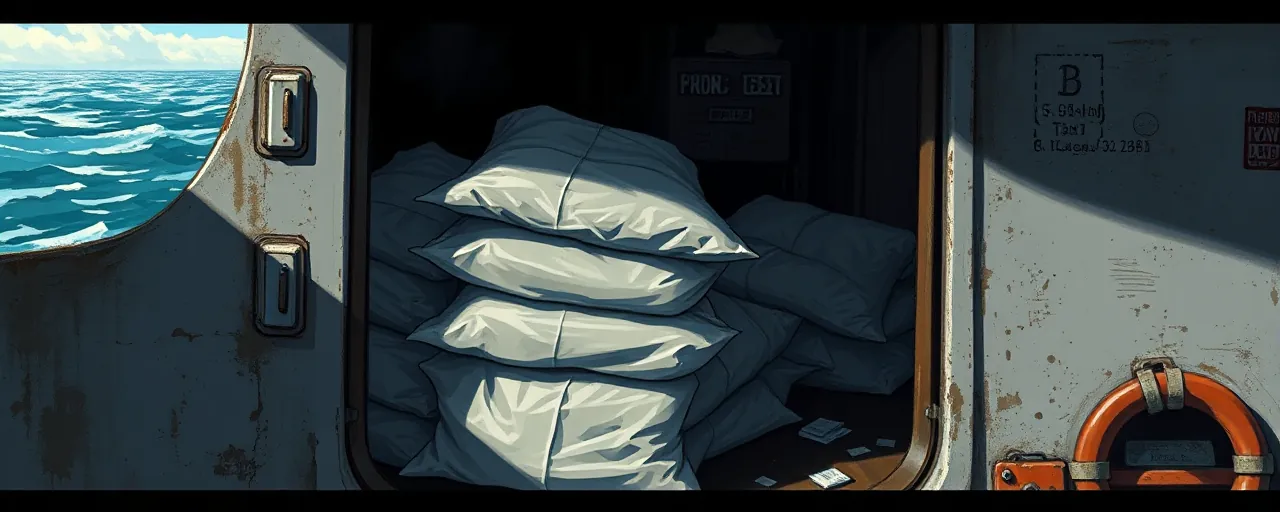A Half-Billion Dollar Blow to Cartels
Last week, the U.S. Coast Guard dropped a bombshell in Port Everglades, Florida, unloading 44,550 pounds of cocaine and 3,880 pounds of marijuana worth a staggering $509.9 million. This wasn’t just a routine bust. It was a deliberate strike against the heart of transnational criminal networks like the Sinaloa Cartel and Jalisco New Generation Cartel, whose drugs fuel addiction and violence across America. The operation, led by the Panama Express Strike Force, sent 34 suspected narco-traffickers to face federal prosecution, proving that law enforcement can still hit hard when it counts.
This seizure isn’t just about numbers. It’s about reclaiming control from cartels that exploit our borders and flood our streets with poison. The Eastern Pacific, a vast and lawless corridor, has long been their playground. But with agencies like ICE’s Homeland Security Investigations and the DEA working alongside the Coast Guard, the tide is turning. America’s resolve to protect its citizens from these criminal empires is crystal clear, and it’s time we double down on these efforts.
Drones and Determination Outsmart Smugglers
What makes this operation stand out is the cutting-edge technology that powered it. Drones, like those used by the Coast Guard Cutter James, spotted suspicious vessels from hundreds of miles away, guiding boarding teams to intercept go-fast boats loaded with drugs. On January 6 alone, three vessels carrying nearly 14,000 pounds of cocaine were stopped in a single day, thanks to real-time drone surveillance and helicopter support. This isn’t science fiction; it’s the future of border security, and it’s working.
Yet, some argue we should ease up, claiming interdictions escalate violence or infringe on international waters. That perspective misses the mark entirely. Cartels don’t respect borders or laws; they thrive on chaos. Ignoring their maritime smuggling routes would hand them a free pass to pump more fentanyl, a drug tied to over 70,000 overdose deaths in the U.S. last year, into our communities. The Coast Guard’s use of drones isn’t overreach; it’s a necessary response to an enemy that’s only grown more cunning.
Cartels’ Grip Weakens, But the Fight Continues
These interdictions hit cartels where it hurts: their wallets. Denying them half a billion dollars in revenue disrupts their ability to bribe officials, buy weapons, or produce fentanyl in clandestine labs. Historical efforts, like the Kingpin Act, show that choking off cartel finances can dismantle their networks, as seen with Colombian cartels in the 1990s. Today’s seizures build on that legacy, targeting groups like Clan del Golfo, whose drugs have been linked to terrorist organizations.
Still, cartels adapt fast. They’ve shifted to floating caches and semi-submersibles, even exploiting Pacific Island nations as transit points. The DEA’s 2023 seizure of over 1.2 billion fentanyl doses proves the scale of their ambition. That’s why operations like Panama Express matter; they don’t just seize drugs, they gather intelligence to unravel these networks. Critics who call for decriminalization or softer borders overlook the ripple effects: weaker enforcement emboldens cartels, endangering not just America but vulnerable regions like Central America.
A Call to Stay the Course
The Coast Guard’s success is a beacon of what’s possible when agencies unite against a common threat. From the FBI to the U.S. Attorney’s office, every player in this operation deserves credit for protecting American lives. But this is no time to rest. Cartels are already plotting new routes, using encrypted apps and global alliances to stay one step ahead. Strengthening maritime patrols and investing in drone technology will keep the pressure on, ensuring our borders aren’t a revolving door for drugs.
America faces a choice: stand firm or let cartels tighten their grip. The $509.9 million seizure proves we can win battles against these criminal empires, but only if we commit to the fight. Every pound of cocaine stopped is a life saved, a community protected. Let’s keep the momentum going, because a secure America is worth every ounce of effort.
